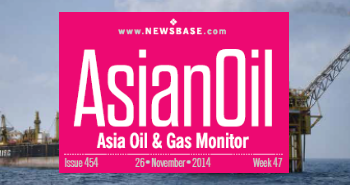Republic of Congo expands oil partnerships, eyes closer ties with Azerbaijan
The Republic of the Congo’s President Denis Sassou-Nguesso is diversifying the West African country’s oil and gas partnerships in search of reliable allies to explore its substantial reserves, reports Modern Diplomacy (MD).
Azerbaijan’s President Ilham Aliyev hosted Sassou-Nguesso in Baku in early April, resulting in a slew of agreements aimed at deepening of bilateral cooperation, according to a statement on the Azerbaijani president’s website.
Congo, the fourth-largest oil producer in the Gulf of Guinea and a member of the Organization of Petroleum Exporting Countries (OPEC) since 2018, is now forging closer ties with Azerbaijan, a country strategically positioned at the crossroads of Eastern Europe and West Asia.
The former Soviet republic of Azerbaijan boasts abundant oil and natural gas reserves and, more importantly, possesses a vast network of gas pipelines, with the Southern Gas Corridor connecting the giant Shah Deniz gas field in Azerbaijan to Europe.
After gaining independence in 1991, Azerbaijan became a member of the International Monetary Fund (IMF), the World Bank, the European Bank for Reconstruction and Development (EBRD), the Islamic Development Bank (IDB), and the Asian Development Bank (ADB).
Azerbaijan’s partnership with international finance development institutions (FDIs) coupled with an established oil and gas infrastructure makes it an attractive partner for Congo’s energy ambitions.
According to MD (Africa), the State Oil Company of Azerbaijan (SOCAR) and Congo's National Oil Company (CNOC) are set to collaborate on expanding the Congolaise de Raffinage oil refinery, enhancing its processing capabilities. The refinery started production in 1982 and specialises in the processing of light oil, with a capacity of 1mn tonnes per year.
Furthermore, both countries will pursue joint environmental initiatives, highlighting a commitment to sustainable resource management. Aligning with Azerbaijan’s dynamic energy sector promises new avenues for Congo’s growth and development.
Congo also has existing bilateral agreements with Russia, but delays in acting on these agreements may have been a contributing factor to Sassou-Nguesso’s widening search for reliable partners to realise the promise of prosperity the country’s oil reserves provide.
Russia’s track record in ventures with oil-rich African nations such as Angola and Nigeria is less than stellar. Nigeria, for instance, expected help from Russia in oil exploration and the construction of petrochemical plants. However, NiGaz Energy, a joint venture (JV) between Russian state-owned energy company Gazprom and the Nigerian National Petroleum Corporation Limited (NNPCL), has failed to produce tangible outcomes.
Congo has signed a set of documents with Russia, including intergovernmental agreements on cooperation in the peaceful use of nuclear energy and on exploration of natural resources, says MD (Africa).
Additionally, Russia’s Pipe Metallurgical Company (TMK) was awarded the sole contract for building a major oil pipeline, running more than 1,300km from the port city of Pointe-Noire in the Republic of Congo to the border with Cameroon.
“Russia is an important country, a strategic partner that may play its role in the period when Africa is looking for cooperation in building a new world in the region, building infrastructure, new economic and security systems,” Sassou-Nguesso said in an interview with Russia’s state news agency TASS.
“The African people want to develop their economy and to establish themselves on the global arena. Russia may hold a strategic position on this issue,” he added.





Follow us online